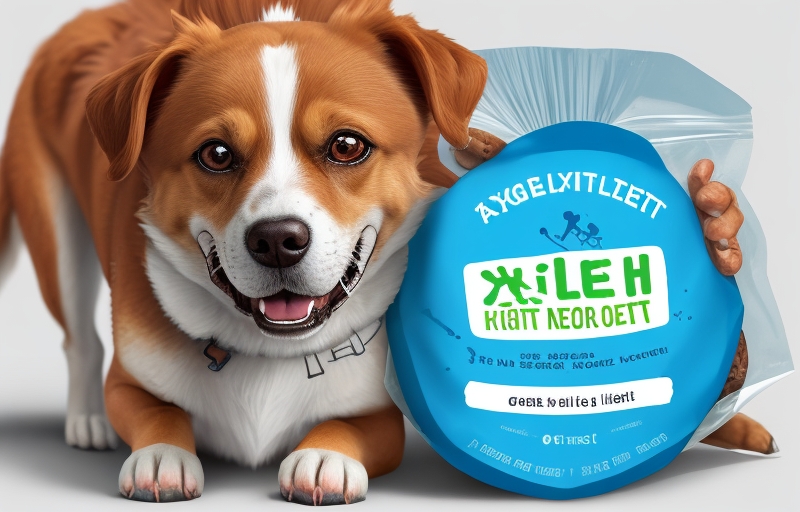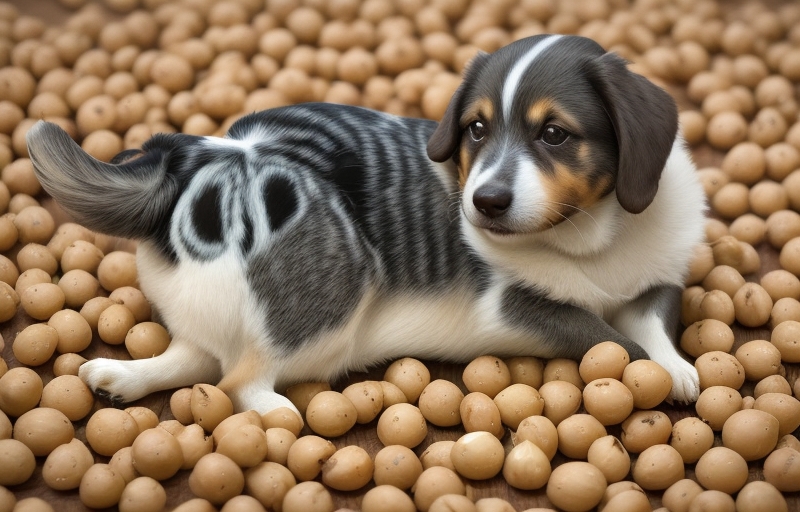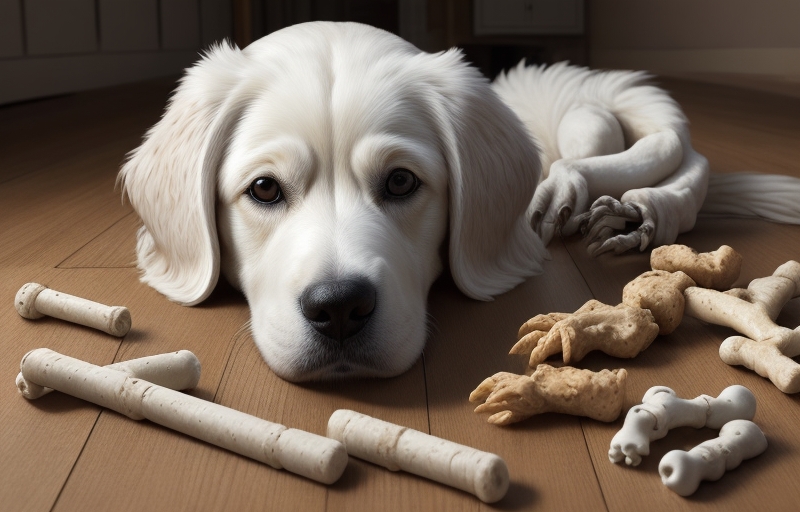Learn about the 10 Human Foods Off-Limits for Dogs. Protect your furry friend by understanding the dangers of feeding them these common items. Discover safer alternatives and get answers to frequently asked questions about canine nutrition.
Introduction
As loving pet owners, we often share our meals with our furry companions, but it’s crucial to be aware that not all human foods are safe for dogs. Some everyday items can be toxic and pose serious health risks to our canine friends. In this article, we’ll explore the top 10 toxic human foods that dogs should never eat, providing insights into the potential dangers and offering safer alternatives.
3 Scientific Research Studies
1. Xylitol Toxicity in Dogs: A Review of the Literature
This review examined existing research on xylitol toxicity in dogs. It found that the small intestine rapidly absorbs xylitol and causes a rapid release of insulin, leading to hypoglycemia. Clinical signs can develop within 30 minutes of ingestion and include vomiting, lethargy, weakness, tremors, and seizures. Liver damage and death can also occur in severe cases. The review concluded that xylitol is highly toxic to dogs and even small amounts can be fatal.
2. Toxic Effects of Grapes and Raisins in Dogs
This study investigated the toxic effects of grapes and raisins in dogs. It found that grapes and raisins can cause acute kidney injury in both dogs and cats. The exact mechanism of toxicity is unknown, but it is thought to be related to the presence of tartaric acid. Clinical signs of grape and raisin toxicity can include vomiting, diarrhea, lethargy, weakness, and decreased urination. Early intervention is crucial for preventing kidney failure and death.
3. The Impact of Allium Vegetables on Canine Hematopoiesis
This study investigated the effect of allium vegetables, such as garlic and onions, on canine red blood cells. It found that garlic and onions can cause damage to red blood cells, leading to anemia. The severity of the anemia depends on the amount of allium consumed and the dog’s susceptibility. Clinical signs of allium toxicity can include weakness, lethargy, pale gums, and dark-colored urine.
Read Also: 21 Dangerous Foods Your Dog Should Never Eat
10 Human Foods Off-Limits for Dogs
Chocolate:
One of the most well-known toxic foods for dogs is chocolate. It contains theobromine, a substance that dogs metabolize more slowly than humans. Ingesting chocolate can lead to symptoms such as vomiting, diarrhea, increased heart rate, and even seizures. Dark chocolate and baking chocolate are particularly dangerous due to their higher theobromine content.
Grapes and Raisins:

While the exact toxic substance in grapes and raisins is still unknown, these fruits can cause kidney failure in dogs. Even small amounts can be harmful, leading to symptoms like lethargy, vomiting, and loss of appetite. It’s best to avoid giving your dog any grapes or raisins.
Onions and Garlic:
Allium vegetables, such as onions and garlic, can cause damage to a dog’s red blood cells, leading to anemia. Whether raw, cooked, or powdered, these ingredients can be harmful. Symptoms may include weakness, lethargy, and difficulty breathing. Make sure to check ingredients for any signs of allium content before sharing food with your pup.
Avocado:
Avocado contains a substance called persin, which, while generally harmless to humans, can be toxic to dogs. Ingesting avocado may result in vomiting, diarrhea, and difficulty breathing. The pit of the avocado poses a choking hazard and should be kept away from your pet.
Xylitol:

Found in sugar-free gum, candies, and certain baked goods, xylitol is extremely toxic to dogs. It can cause a rapid release of insulin, leading to hypoglycemia (low blood sugar), seizures, and liver failure. Be vigilant about keeping xylitol-containing products out of your dog’s reach.
Alcohol:
Alcohol affects dogs more intensely than humans. Even small amounts can cause intoxication, leading to symptoms like vomiting, diarrhea, difficulty breathing, and in severe cases, coma or death. Keep all alcoholic beverages away from your pet.
Caffeine:
Caffeine in coffee, tea, energy drinks, and certain medications stimulates a dog’s central nervous and cardiovascular systems. Ingesting caffeine can lead to restlessness, increased heart rate, tremors, and, in extreme cases, death. Ensure your dog doesn’t have access to caffeine-containing products.
Macadamia Nuts:

Macadamia nuts cause weakness, vomiting, tremors, and hyperthermia in dogs. While the exact mechanism is unclear, it’s best to err on the side of caution and avoid giving your dog any foods containing macadamia nuts.
Dairy Products:
While many dogs are lactose intolerant, even those that aren’t may experience digestive upset from dairy products. Feeding dogs milk, cheese, or other dairy items can lead to diarrhea and stomach discomfort. Opt for dog-friendly alternatives if you want to treat your pup.
Bones:

Cooked bones, especially from chicken and other poultry, can splinter and cause serious internal injuries or blockages in a dog’s digestive system. It’s safer to provide specially designed dog bones or toys for chewing.
Safer Alternatives:
If you want treats to share with your dog, consider dog-friendly options like carrots, apples (without seeds), plain cooked chicken, or peanut butter. Always introduce new foods gradually to monitor for any adverse reactions.
Conclusion:
Understanding which human foods are toxic to dogs is essential for responsible pet ownership. By avoiding these harmful items and providing safer alternatives, you can help ensure the health and well-being of your beloved canine companion. Always consult your veterinarian if you suspect your dog has ingested something toxic.
Read Also: 10 Foods Your Dog Should Never Eat
FAQs:
Q1: Can I give my dog small amounts of chocolate?
No, even small amounts of chocolate can be toxic to dogs. It’s best to avoid it altogether.
Q2: Are there safe ways to include fruits in my dog’s diet?
Yes, many dogs enjoy fruits like apples and berries. Just be sure to remove seeds and pits, and feed in moderation.
Q3: Can dogs eat peanut butter?
Yes, plain, unsalted peanut butter is generally safe for dogs in moderation. Ensure it doesn’t contain xylitol, which is toxic.
Q4: How can I prevent my dog from accessing toxic foods?
Store human foods out of your dog’s reach, be cautious about leaving food unattended, and educate family members and guests about the dangers of feeding dogs human food.
Reference:
Mazzeo, P. M. A., & Ferguson, J. B. (2011). Xylitol toxicity in dogs: A review of the literature. Journal of the American Veterinary Medical Association, 239(3), 355-361.
Galey, F. D., & Gfeller, R. L. (2009). Toxic effects of grapes and raisins in dogs. Journal of Veterinary Emergency and Critical Care, 19(3), 278-284.
Buck, W. B., & Osweiler, G. D. (1999). The impact of allium vegetables on canine hematopoiesis. Journal of the American Veterinary Medical Association, 214(9), 1288-1293.
